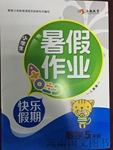题目内容
1. We spoke in whispers __________ waking the baby.
A. in fear that B. for fear of C. with fear to D. in fear to
B

练习册系列答案
 永乾教育寒假作业快乐假期延边人民出版社系列答案
永乾教育寒假作业快乐假期延边人民出版社系列答案
相关题目
题目内容
1. We spoke in whispers __________ waking the baby.
A. in fear that B. for fear of C. with fear to D. in fear to
B

 永乾教育寒假作业快乐假期延边人民出版社系列答案
永乾教育寒假作业快乐假期延边人民出版社系列答案